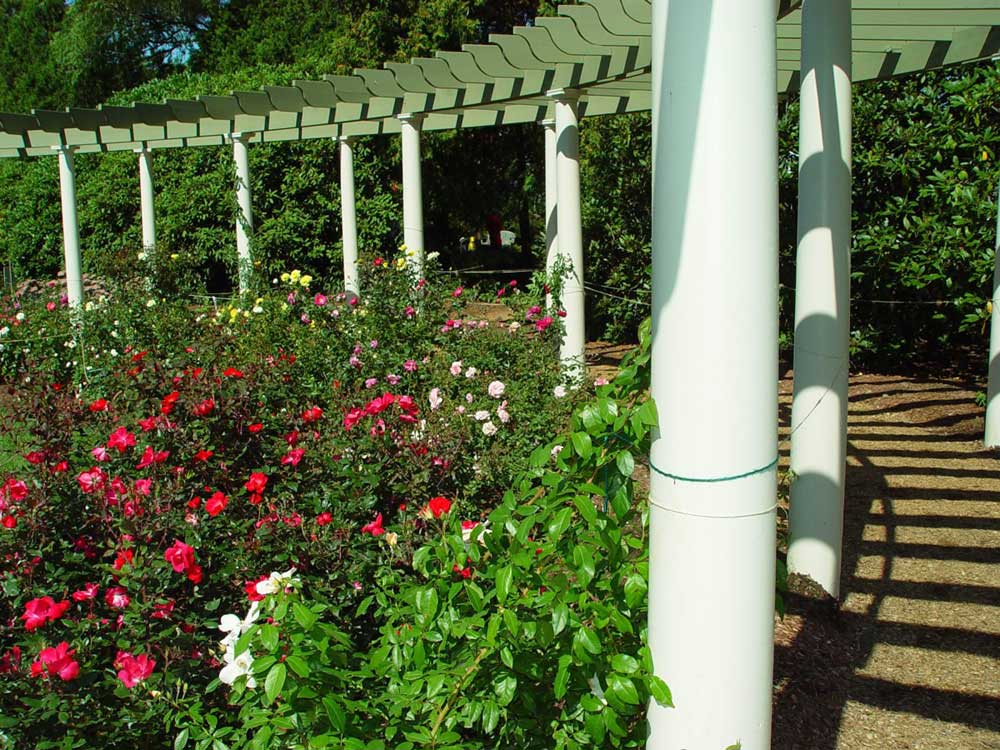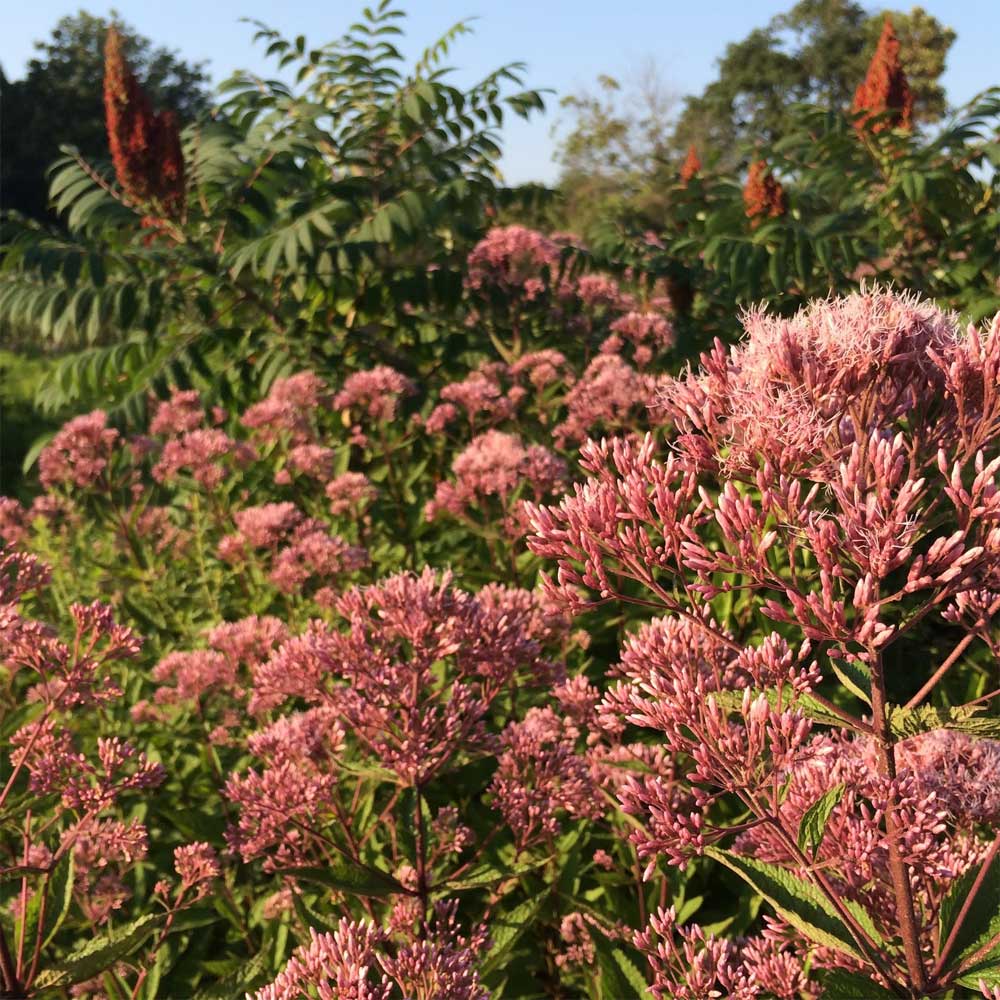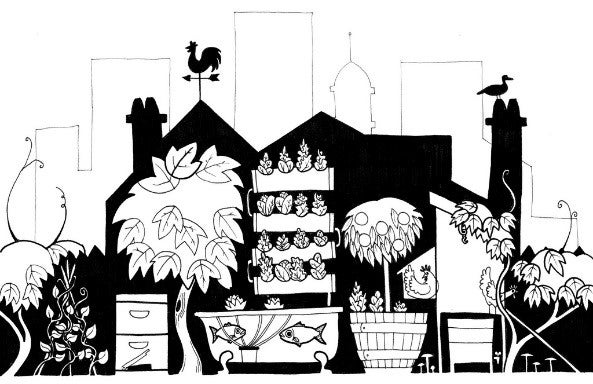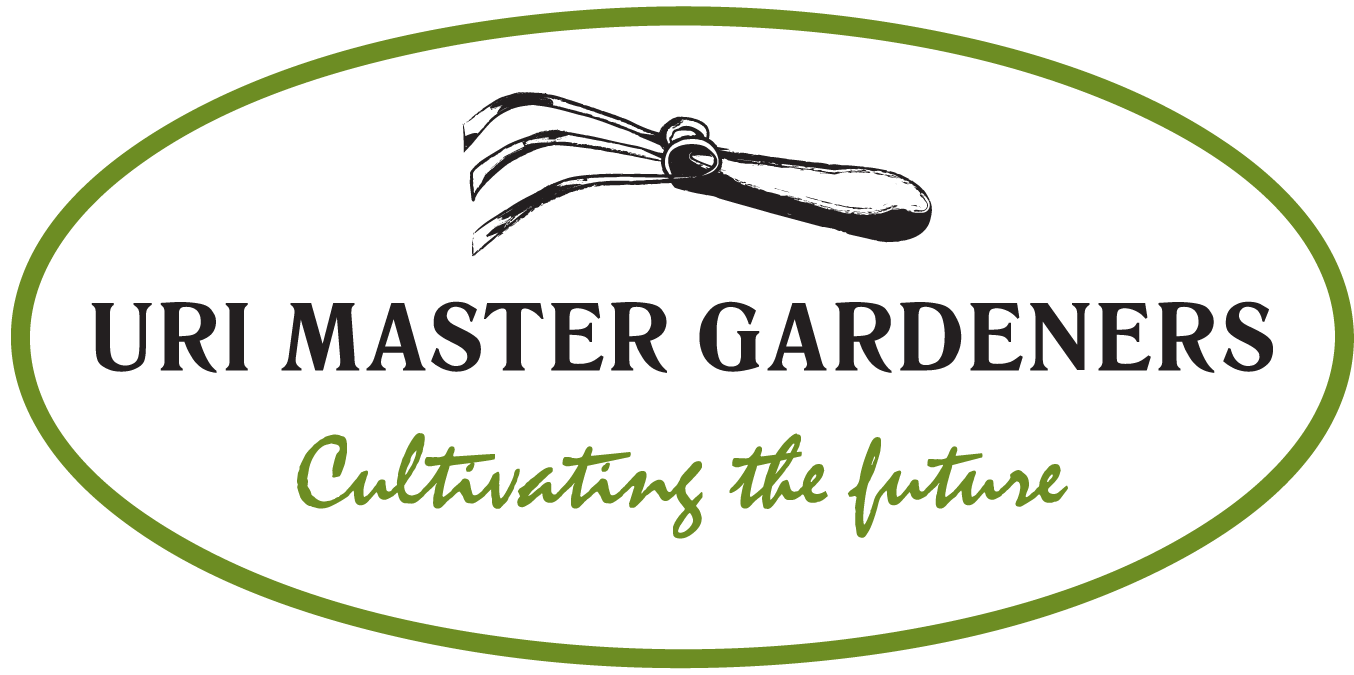The Dirt for August 3, 2017: Harvest & Garden Tips, Upcoming Conferences
Harvesting and Storing Garden Produce
It’s harvest time in the garden! Here are some reminders from our local Cooperative Extension staffers so you may have a healthy, safe harvest. The text below is reprinted from “Garden to Table: Five Steps to Food Safe Fruit and Vegetable Home Gardening”
Enjoy,
Vanessa Venturini | State Program Leader
 HARVESTING GARDEN PRODUCE
HARVESTING GARDEN PRODUCE
When harvesting, use a clean, food-grade container. A foodgrade container is made from materials designed specifically to safely hold food. Garbage bags, trash cans, and any containers that originally held chemicals such as household cleaners or pesticides are not food-grade. Remember the rules of personal hygiene when picking produce. Use clean gloves that have not been used to stir compost or pull weeds or clean hands. After the produce has been harvested, shake or rub off any excess garden soil or debris before bringing it into the kitchen.
STORING GARDEN PRODUCE
To wash, or not to wash?
Even the experts disagree when giving advice on washing garden produce. Some tell you not to wash before storage, and some will tell you to wash off any garden dirt before bringing produce into the home. At issue is this: if you bring in fresh produce loaded with garden dirt, you may also bring pathogenic microorganisms into your kitchen. However, if you wash your produce before storage, it may mold and rot more quickly. If you choose to wash fruits and vegetables before storing, be sure to dry them thoroughly with a clean paper towel.
The temperature of the wash water can affect the safety of some fruits and vegetables. If the water is much colder than the produce, pathogens may be pulled into fruits or vegetables through the stem or blossom end. So, when washing produce fresh from the warm outdoors, the rinse water should not be more than 10 degrees colder than the produce. If you are washing refrigerated produce, use cold water.
If you choose to store without washing, shake, rub or brush off any garden dirt with a paper towel or soft brush while still outside. Never wash berries until you are ready to eat them. Store fresh produce in plastic bags or containers so they don’t contaminate other foods in the refrigerator. Keep fruit and vegetable bins clean. Fruits and vegetables needing refrigeration can be stored at 40 F or less. If your refrigerator has a fruit and vegetable bin, use that, but be sure to store fresh produce away from (above) raw meats, poultry or fish.
Full text: “Garden to Table: Five Steps to Food Safe Fruit and Vegetable Home Gardening”
Nominations Needed for MG and Rookie of the Year Awards
FINAL REMINDER: DEADLINE EXTENDED TO AUGUST 7TH
We still have minimal nominations especially for Rookie of the Year. Please take the time to complete the forms found here or on the website in the documents section, under the Policy and Operating Guidelines tab.
When completed email them to Charlie Junod at excaliben@cox.net.
The guidelines for these nominations are also found with the forms in the documents page of the website. Click on the links below to access to forms directly.
Click here for Rookie of the Year form. Click here for Master Gardener of the Year Form.
Winners (and nominees) will be announced at the September 16th Volunteer Recognition Event. In addition, this year we will also be announcing a Project of the Year award winner to be selected by the Recognition Committee.
Thanks in advance for your help!
– Charlie Junod, Chair, Recognition Committee
Southern Region MG’s to Pollinate New England in 2018
 Wilcox Park in Westerly, RI already has an arboretum quality collection of trees, a dwarf conifer collection, a native rain garden, a formal native garden, and a native aquatic plant collection. Thanks to the hard work of URI Master Gardener Sandi Carmichael, the native gardens of Wilcox Park are about to get significantly larger.
Wilcox Park in Westerly, RI already has an arboretum quality collection of trees, a dwarf conifer collection, a native rain garden, a formal native garden, and a native aquatic plant collection. Thanks to the hard work of URI Master Gardener Sandi Carmichael, the native gardens of Wilcox Park are about to get significantly larger.
Early this spring, Sandi and Alan Peck, Superintendent of Wilcox Park, applied for a grant from the New England Wild Flower Society. In July, Alan and Sandi learned that their hard work paid off as Wilcox Park was one of only two sites in Rhode Island to be awarded the grant. Wilcox Park was selected, in part, because of the strong connection between park personnel and URI Master Gardeners. Master Gardeners are a strong presence in the park, conducting regular educational programming that is popular with the public. This includes regular soil testing, cultivation of the gardens as well as monthly tours of the big tree collections and native gardens. Most importantly, the relationship includes a strong community educational component in the execution of those duties.
Beginning in the summer of 2018, the grant will provide a new pollinator garden to support the New England Wild Flower Society’s efforts to “pollinate New England”. The new pollinator garden at Wilcox Park is proposed to contain approximately 150 square feet of native plants that will provide three seasons of support for a wide variety of native pollinators throughout their life cycle. It is anticipated that the new pollinator garden will be a welcomed addition to the seasonal monthly native plant tours of Wilcox Park. The grant also include educational opportunities through the New England Wild Flower Society in the form of a pollinator workshop that will be open to all master gardeners. As a result, URI Master Gardeners will be better prepared to educate the public in the value of planting native plants in support of native pollinators.
Congratulations to Wilcox Park and our URI Master Gardener Teams!
August Gardening Tips: Republished from the UConn Home and Garden News
 A second planting of cool-season crops such as broccoli, spinach, kale, lettuce, and chard should go in an area where they will be shaded from the sun.
A second planting of cool-season crops such as broccoli, spinach, kale, lettuce, and chard should go in an area where they will be shaded from the sun.Pick summer squash and zucchini every day or two to keep the plants producing.
Allow tomatoes to ripen fully on the vine although cherry tomatoes may split if left too long. Pick as soon as they have color.
Water azalea and rhododendron bushes regularly during dry periods as they are forming their flower buds for next spring.
Peppers can be picked at any stage of development. Sweet peppers just become sweeter and hot peppers hotter the longer they are on the plant.
Order peony roots so that you have them to plant in September.
Fertilize containers and hanging baskets with ½ the recommended dose of a balanced liquid fertilizer twice as often as recommended.
Take 3-4 inch cuttings of begonias, geraniums, coleus, and fuchsia to overwinter. Place the cuttings in containers with potting mix, keep moist in a shady area until you bring them inside.
Monitor plants for spider mite activity. Hose these pests off with a forceful spray of water.
Pick beans often to keep the plants productive.
Frequently Asked Questions: Continuing Education Hours
Q: When do I need to complete my continuing education hours?
A: In the year following completion of your internship, in order to maintain certification, we ask that you complete 10 hours of continuing education. If you receive your blue pin in 2017, in 2018 you’ll need 10 continuing education and 20 volunteer hours to maintain certification as a URI Master Gardener Program.
Q: Where do I find eligible continuing education offerings?
A: Find eligible classes (MG website password – seeds) :
- In the newsletter: https://web.uri.edu/mastergardener/portal
- Calendar: https://web.uri.edu/mastergardener/calendar
- MG-led classes in the community via email and on our website: https://web.uri.edu/mastergardener/
- Recordings of Core Training classes: https://web.uri.edu/mastergardener/coretraining/
- Recordings of Continuing Education classes: https://web.uri.edu/mastergardener/continuing-education/
- If attending another class, you may email the State Program Leader to find out if it is eligible for URIMGP continuing education credit – Vanessa@uri.edu
Q: Which classes are free?
A: Any courses offered through URIMGP Continuing Education are offered free to active URI Master Gardener volunteers. The Spring Garden Symposium and Gardening with the Masters Tour are events which do have fees associated with them for MG’s and the public. We will also list courses from outside organizations which may have associated fees.
August URIMGP Continuing Education Classes
 Invasive Plant Management: Late Season Strategies and Methods for Restoring Habitat
Invasive Plant Management: Late Season Strategies and Methods for Restoring Habitat
ONLY 4 SPOTS LEFT!
August 31st, 9-12 pm
Canonchet Farm, Narragansett
Join Thomas Fortier, for session 2 of a guided field study at Canonchet Farm Habitat Restoration. While participants are not required to attend both sessions, the effective strategies for invasive plant removal and habitat restoration in the late season vary significantly from those used in the early season. We’ll look at the methods for restoring the native plant complexes and delve into plant identification. Each participant will have the chance to try out a range of tools for invasive removal. Dress for field work. Space is limited.
Please register in Volgistics.
Fall 2017 URIMGP Continuing Education classes announced next week!
CONFERENCES & CLASSES from PARTNER ORGANIZATIONS
NOFA Summer Conference: Celebrating our Interconnectedness
| Aug. 11 – 13, 2017 |
| New Site: Hampshire College, Amherst, MA |
| Nofasummerconference.org. |
| We’re grateful to have Dr. Don Huber and Michael Phillips as 2017’s keynote speakers! We are also excited to host an amazing collection of organic minded professionals that will enliven our potential to create robust, healthy food systems that provide real food for all. |
From generations of past cultures that established the sustainable production systems upon which we base our modernized techniques, to our immediate relationship with neighbors and the global community of conscious minded producers and consumers, to the microbial life that supports our bodies and our environment, we exist within a vast web of interconnectedness.
Simply put, we are better together. We are stronger together. Inseparable, in fact, from each other and the systems that support our lives and our food. If we work to ensure a harmonious relationship with ecological and social systems, we can cultivate fair and thriving production and consumer models to live within. Join us to build upon this interconnectedness – from microbial to human communities – on August 11-13!
Sincerely,
NOFA Summer Conference Committee
Course: Permaculture, Designing a Backyard Homestead

- Create a backyard homestead design plan utilizing permaculture design principles.
- Develop ways to assess your family’s food needs and build community food resilience.
- Discover nutrient dense, low maintenance perennial food crops that return year after year.
WEDS. 6:00-8:50 pm. Bristol Community College, Fall River Campus
Register online: http://www.bristolcc.edu
Course Search: Sustainable Agriculture
Garden Design Class at Swan Point Cemetery
Thursday, August 17 at 4 PM
585 Blackstone Boulevard
Please join us on Thursday, August 17, 2017 at 4:00 p.m. at Swan Point Cemetery, 585 Blackstone Boulevard, Providence RI in the Gray Coale Reception Hall, adjacent to the main office for a discourse on garden design. Landscape horticulturist Warren Leach shall discuss planting design in gardens that continue to dazzle from late summer, fall and even onward.
His talk will focus on quenching heat, humidity and drought. A garden designed with a plant palette to withstand the dog days of August and drought of summer and will continue to offer colorful exuberance of flowers, maturing seedheads and colorful foliage.
The lecture will last approximately 1 hour with light refreshments.
Please call 401-272-1314 to reserve your seat, or email AnitaV@swanpoint1846.com
“Inspiration for Next Year’s Garden”

The Massachusetts Master Gardener Assn. (MMGA) is sponsoring an important regional educational event on September 23, 2017 in Westford, MA: our 2nd annual Gardening Symposium, “Inspiration for Next Year’s Garden.”
The agenda includes four nationally-recognized speakers: Thomas Rainer, author of Planting in a Post-Wild World: Designing Plant Communities for Resilient Landscapes; David Culp, plant hybridizer, Sunny Border executive, and author of The Layered Garden; Kathleen Gagan, owner of Peony’s Envy, a nursery and display garden featuring the Northeast’s most extensive peony collections; Janet Macunovich, online, broadcast and hands-on gardening educator and the author of best seller Designing Your Gardens and Landscapes).
The Massachusetts Gardening Symposium will be held at Westford Academy in Westford, MA, 8:30 AM – 3:30 PM, on Saturday, September 23. Additional information and registration can be found at http://massmastergardeners.org/2017-gardening-symposium/. Tickets are $75.00 thru August 6; $90.00 starting August 7. Credit/debit cards, checks and PayPal are accepted. Registration closes September 16, 2017, and space is limited.
UConn Native Plants and Pollinators Conference
Student Union Ballroom (Room 330) 2100 Hillside Road, Storrs, CT 06269
October 19, 2017
8:00 – 8:45 a.m. Registration and Coffee
8:45 – 9:00 a.m. Welcome and Introductions Vickie Wallace, Extension Educator, UConn Extension and Dr. Michael O’Neill, Associate Dean and Associate Director, UConn Extension
9:00 – 10:00 a.m. “Lifestyles of Pollinators” David Wagner, Professor, Department of Ecology and Evolutionary Biology, University of Connecticut Learn about the ecology and behavior of insect pollinators and their conservation.
10:00 – 11:00 a.m. “Native Perennials for Bees, Butterflies, and Birds” Emily DeBolt, Fiddlehead Creek Nursery, Fort Ann, NY Discussion of herbaceous perennials to support pollinators, including top-performing cultivars, and examples from design/build projects. 11:00 – 11:15 a.m. Break
11:15 a.m. – 12:15 p.m. “Selecting Native Shrubs for Season-long Pollinator Support” Jessica Lubell, Associate Professor, Department of Plant Science and Landscape Architecture, University of Connecticut Landscape uses of native shrubs, both popular and under-used, will be covered in sequence of bloom to create season lasting pollinator support.
12:15 – 1:00 p.m. Lunch
1:00 – 2:00 p.m. “Research Update: Examining Pollinator Attraction of Shrub Nativars” Jacob Ricker, Graduate Student, Department of Plant Science and Landscape Architecture, University of Connecticut Report from the first data collection season of our UConn study to evaluate pollinator support of several native shrub species and their cultivars.
2:00 – 3:00 p.m. “Native Trees for Pollinators” Andrew Brand, Broken Arrow Nursery, Hamden, CT Native trees with ornamental characteristics that also function to support pollinators through flowers and foliage.
3:00 p.m. Pesticide Recertification and Adjournment – Safe Travels!
Register online or visit the UConn IPM website (www.ipm.uconn.edu) Early Registration $50.00, by Friday, September 8, 2017 $60.00 after September 8, 2017 Students $25.00 with valid school ID
Registration fee includes parking, morning refreshments, and lunch. Parking is available in the North Parking Garage (103 North Eagleville Road) and South Parking Garage (2366 Jim Calhoun Way).
Please bring your parking garage ticket with you to check-in for validation. See UConn Storrs Campus map.
Please note that the registration system will accept only one credit card payment per email address, whether for an individual or group registration. If after submitting your individual or group registration, you need to pay for additional registrations, please do so by phone. Please call 860-486-3336 between 8:00 a.m. and 3:30 p.m., Monday through Friday
Hot Topics from the URI Consumer Horticulture Educator
 The following science-based articles may help you answer questions from the community. Rosanne Sherry, URI Consumer Horticulture Educator, recommends you read them to help sharpen your own gardening and educator skills!
The following science-based articles may help you answer questions from the community. Rosanne Sherry, URI Consumer Horticulture Educator, recommends you read them to help sharpen your own gardening and educator skills!
From New Terrain July 5, 2017
Wildlife-friendly plants are trendy.
According to Houzz Inc.’s 2017 Landscape Trends Study, slightly more than half of homeowners who are planting greenery (other than lawns) for a completed, current or planned outdoor project want plants that are insect/bird attractive (52% in 2017) and/or native (51% in 2017). The majority of those same homeowners also want plants to be low maintenance (76%) and to flower (69%). Edible plants are on the decline, says this Houzz survey.
Interestingly, 76% of survey respondents with lawns who are also performing outdoor renovations are changing their lawn. Houzz reports that back or side lawns are more likely to be replanted or expanded, while front lawns are much more likely to be removed altogether, with environmental concerns being a strong motivator.”
The survey was conducted of registered Houzz users in the United States in February and March.
The Green Roof Goat Cam
Chris Schultz shared this fun link with the Capitol Greenroofs group. For a few moments of levity, instead of watching a cat or guinea pig video, try the goat cam at Al Johnson’s Swedish Restaurant & Butik in Sister Bay, Wisconsin. As Chris wrote, “Although it’s somewhat gimmicky, they’ve been doing this for a long time as a trademark of sorts.” As you’ll see this time of year, goats on a grassed roof are quite a tourist attraction in this part of Door County. (The goats do not spend nights or winters on the roof.)
Check out Mt. Cuba’s new Monarda trial report generated from data gathered over three years from 2014-2016. This garden perennial staple is a pollinator and hummingbird favorite. Plants in the trial were studied for habit, vigor, flower display and powdery mildew resistance. It’s no surprise that Monarda fistulosa Claire Grace was the top performer. Others in the top 10: Dark Ponticum, Violet Queen, AChall, Judith’s Fancy Fuchsia, Colrain Red, Raspberry Wine, Purple Rooster, On Parade and Gardenview Scarlet.
UMASS Landscape Message July 14, 2017
Asiatic Garden Beetle: Maladera castanea adults are active and are typically most abundant in July and August. These rusty-red colored beetles are bullet-shaped and active at night. They are often attracted to porch lights. They feed on a number of ornamental plants, defoliating leaves by giving the edges a ragged appearance and also feeding on blossoms. Butterfly bush, rose, dahlia, aster, and chrysanthemum can be favored hosts. When levels of damage reach a management threshold, pyrethroid- based insecticides may be necessary. Read and follow label instructions and avoid harming non-target organisms. Certain neem oil products are also labelled for use against adult beetles. Observe label instructions to minimize the potential for leaf injury
Read “The Dirt” Every Week
The votes are in the new name for the URI Master Gardener Newsletter is ”The Dirt”. It will continue to have all the news you need to complete your volunteer and education hours as well as tips for gardening and creating s sustainable environment. Look for it in your inbox each Thursday.
Archived editions of The Dirt are found here (password – seeds) web.uri.
 Home
Home Browse
Browse Close
Close Events
Events Maps
Maps Email
Email Brightspace
Brightspace eCampus
eCampus


